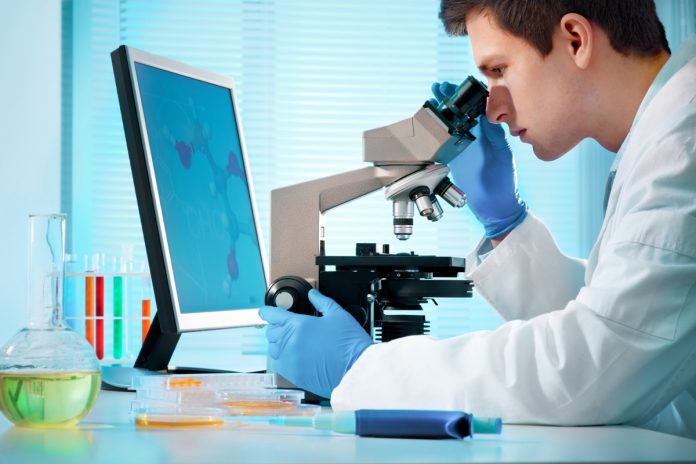An Italian clinical and research network aims at improving the diagnosis, management and care of patients with paediatric ataxias
Paediatric ataxias (PAs) are a large, heterogeneous group of non-progressive (malformative) or progressive (degenerative) conditions, often with a genetic basis. The clinical association of early onset ataxia with a wide spectrum of neurological and non-neurological signs makes these conditions highly disabling, with major consequences in terms of mortality and morbidity.
Clinical data and neuroimaging may remain unspecific, while genetic diagnosis is often impaired by scarce access to testing, high heterogeneity, and limited knowledge of the genetic basis of many PAs. As a result, diagnosis is delayed or remains merely descriptive in many patients, leading to uncertain prognosis and incorrect counselling. Also, the natural history of many forms of PAs is poorly understood and, even for patients with a genetic diagnosis, genotype-phenotype correlates are scarce, with a lack of prognostic indices that could be useful for patients’ management. Reliable quantitative ataxia scales in children are missing, making it difficult to properly assess progression and treatment-related improvements. To date, therapies for most PAs (especially non-progressive) are lacking, and effective motor and cognitive rehabilitation remains a key strategy to improve patients’ quality of life and favour their inclusion in the social context. Yet, at least in Italy, access to traditional rehabilitation is often impaired by distance, families’ economic issues, limited time availability and long waiting-lists of rehabilitation centres, greatly hampering its potential benefits.
The Italian Network for Paediatric Ataxias
To address these issues, several clinical and research centres specialized in different aspects of PAs have recently gathered to create an Italian Network for Paediatric Ataxias, with support from the Italian Ministry of Health (Network Project, Ricerca Finalizzata 2013) and the Pierfranco and Luisa Mariani Foundation, a private foundation funding research on paediatric neurological disorders in Italy (PADAPORT project). Among participating centres are the IRCCSs Santa Lucia Foundation and Bambino Gesù Paediatric Hospital in Rome, Eugenio Medea Institute in Bosisio Parini, Carlo Besta Scientific Institute in Milan, and many others.
The Network, coordinated by the Italian National Institute of Health, has many ambitious purposes, the first being to define a still lacking public health approach in the field of PAs. This objective is being pursued through the creation of a National Registry of Disease, in order to reliably describe the prevalence, incidence, distribution and received levels of care for PAs in Italy, and also to characterise the natural history of different forms. This database builds upon already existing local registries focused on specific PAs, such as Joubert syndrome, Friedreich’s ataxia and so on. Such a centralised collection of data is expected to optimise diagnostic algorithms at least for the commonest forms of PAs, integrating clinical, genetic and neuroradiological data as well as data on disease progression and response to treatments.
In the long term, the Network aims at putting together an expert panel to define Clinical Guidelines for the management and rehabilitation of PA patients, integrating the use of common strategies and modern, cost-effective, home and lab-based neuropsychological and motor rehabilitation techniques. These guidelines are likely to reduce the social costs for the national health system, by exploiting novel methodologies, reorganising available resources and making diagnosis and rehabilitation widely accessible throughout the national territory. In parallel, a web portal is being created in close liaison with patients’ associations to spread information to families, teachers, health and social care givers; a dedicated and reserved area of the portal will be dedicated to the connection of clinicians for faster exchange of information and support, expanding the existing network of professionals.
As a second objective, the Italian PA Network seeks to improve the rate of genetic diagnosis of PAs in Italy. To date, the evaluation of clinical and neuroimaging features results in a precise diagnostic suspect only in a subset of patients, in whom genetic confirmation still allows more precise genotype-phenotype correlates and the possibility of access to early prenatal diagnosis. In other patients with unspecific clinical and imaging features, genetic testing would be mandatory to reach a definite diagnosis, yet this is impaired by the scarce offering of such diagnostic tests on the territory, and the fact that many genetic determinants are yet to be identified. This results in frequent under-, mis- or delayed-diagnosis, leading to uncertain prognostic assessment and counselling. The Italian Network plans to centralise genetic diagnosis in a limited number of centres, and to optimise next generation sequencing strategies in order to offer genetic diagnosis even to patients with rare PAs, and also to identify novel disease genes. This is expected to speed up the time to diagnosis, greatly increasing diagnostic efficacy on the territory.
From diagnosis to care: Promoting translational research on paediatric ataxias in Italy
Finally, the Network intends to promote and develop a new concept in the study and treatment of PAs that, through the use of pervasive technologies, moves the assessment and rehabilitation scenario from a clinical setting to the patient’s home, with the double aim of obtaining a controlled, quantitative evaluation of motor and cognitive performances and of assessing the potential benefits of innovative videogame−based rehabilitation strategies.
This is based on recent studies which demonstrated the effectiveness of treatments based on virtual reality and videogame platforms to reduce ataxia and improve balance. Moreover, virtual reality and commercially available videogames are well fitted to develop rehabilitation programs aimed at improving problem-solving strategies, attention, working memory and visuospatial organisation – all abilities compromised in PAs.
In this light, innovative low-cost, widely accessible technologies are being developed for home-based assessment and for rehabilitation of motor and cognitive deficits. If successful, these techniques will be easily made accessible to most if not all families at their own home, with very considerable benefits for both patients and the National Health System. This pioneering approach is also expected to pave the way for the adoption of innovative diagnostic and rehabilitative strategies in other paediatric disorders also characterised by motor and/or cognitive deficits, becoming an example of effective translational research.
Enza Maria Valente
Associate Professor of Medical Genetics
University of Salerno
Neurogenetics Unit
IRCCS Santa Lucia Foundation, Rome
Tel: +39 06 5017 03212
Please note: this is a commercial profile











